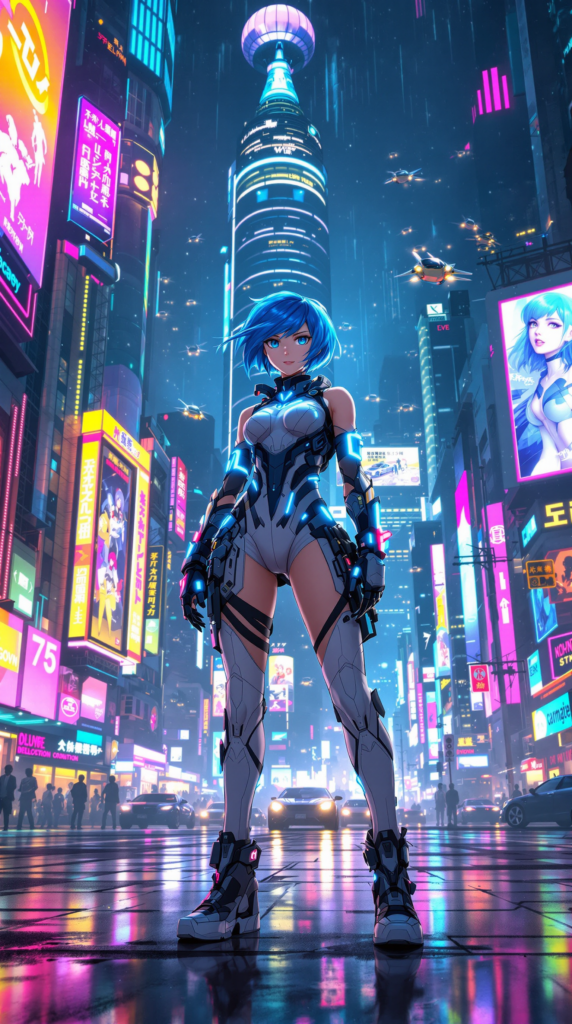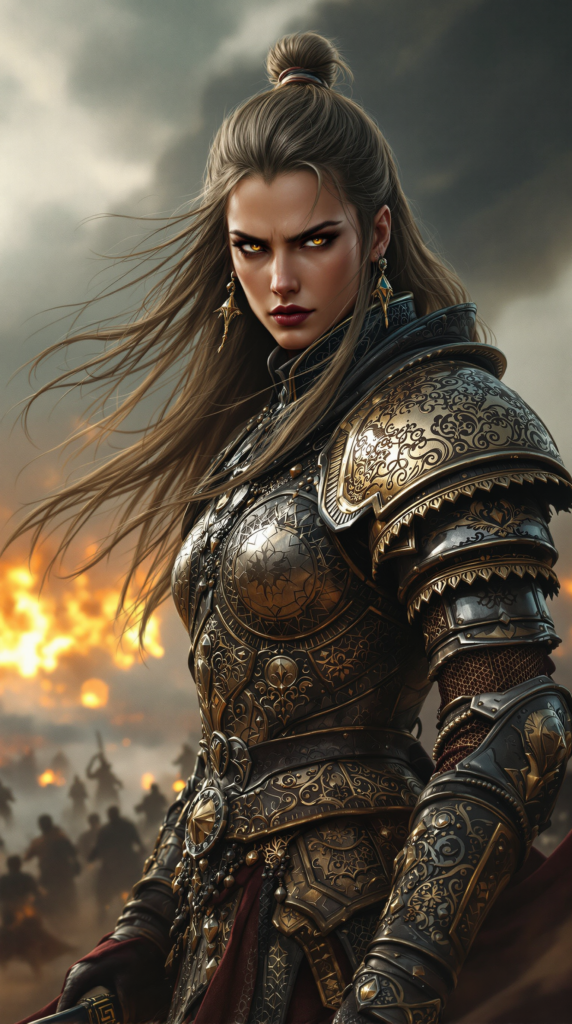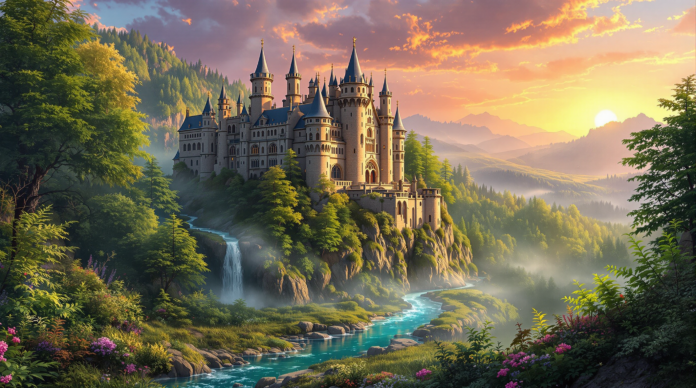Embarking on the journey of creating art with NovelAI is both thrilling and rewarding. This platform empowers users, from writers to visual artists, with robust tools and customization options that elevate the quality of AI-generated images. Whether your goal is to craft anime-inspired visuals, fantastical scenes, or lifelike portraits, mastering the use of prompts is key to achieving superior results. This guide offers practical advice and strategies to help you maximize the potential of NovelAI’s image generation features.
Understanding NovelAI and Its Benefits
NovelAI is a sophisticated AI platform that excels in generating both text and images, with a particular emphasis on anime and furry art styles. By leveraging diffusion models akin to Stable Diffusion, it transforms text prompts into distinct visual artworks. Users can fine-tune their creations by employing tags that specify visual elements, offering a highly personalized and creative experience.
The worth of NovelAI’s image generation depends on your specific needs. It boasts an intuitive interface and delivers high-quality outputs that align closely with user prompts, especially in anime and furry genres. However, it’s important to weigh the subscription costs against your artistic goals and budget before making a commitment.
Steps to Achieve High-Quality Art with NovelAI
Customizing Your Image Prompts
NovelAI allows users to interact with image prompts that offer clickable elements for detailed customization. This feature enables you to modify base images to better match your creative vision. To access the full suite of features, including image generation, a subscription or NovelAI gift key is required. Further refinement of images is possible, allowing for precise adjustments and enhanced results.

Navigating the NovelAI Interface
The user-friendly design of NovelAI makes it easy for users to explore various settings and options. This accessibility is particularly beneficial for newcomers to AI art, simplifying the process of creating high-quality images.
Crafting Effective Prompts
To create the best prompts in NovelAI, consider these tips:
- Be detailed in your descriptions and use tags as a guide rather than a limitation.
- Emphasize key elements using curly brackets:
{{{{ masterpiece }}}}. - For Stable Diffusion users, parentheses are recommended:
((( masterpiece ))). - Remember, NovelAI does not save images between sessions, so save your favorites to avoid losing them.
- Stay within the token limit to ensure the AI generates content effectively and accurately.
The amount of direction you give in your prompt will affect the AI’s results. Higher values keep the AI closely aligned with your main idea, while lower values allow for more artistic interpretation. Including specific visual details in your prompt can help the AI produce more precise and appealing images.
Managing Unwanted Content
For models V2 and V3, you can adjust how unwanted content affects your images. This feature helps maintain focus on desired elements, ensuring a cleaner final product.
Adjusting Color and Detail
The NovelAI V3 model benefits from low recommendation values, but if you prefer more vibrant images, you can adjust settings to reduce color saturation. The Decrisper tool, located next to the Prompt Guidance slider, helps correct visual issues and enhance color in images with higher guidance levels.
Leveraging Danbooru for Anime Art
Anime models often draw from Danbooru, a leading anime imageboard known for its comprehensive tagging system. This system categorizes images with detailed labels, from creator and character to minute details like ‘holding food’ or ‘purple bowtie.’ NovelAI can generate tags similar to those found on Danbooru, enhancing the specificity and quality of your anime-style art.
Techniques for Improving Image Quality
Step Settings
- Begin creating images at 28 steps since NovelAI starts billing from step 29 onward.
- You can go up to 50 steps, but improvements may taper off beyond a certain point.
Aspect Ratios
Experimenting with different aspect ratios can significantly influence the final image. Try various options to find the one that best suits your vision.
CFG Scale
The CFG (classifier-free guidance) scale dictates how closely the AI adheres to your prompt. An initial scale of 5 to 15 is recommended. Lower scales (4-7) allow for more creativity, while higher scales ensure the AI sticks closely to your prompt.
Resolution and Image Quantity
Choosing a lower resolution and generating fewer images can improve efficiency during experimentation. This approach allows you to better understand how different prompts affect the output.
Sampling Method
Using k_euler is generally recommended for stable and predictable results, while ddim offers more artistic and expressive potential, providing a unique style of output.
Utilizing Tags in NovelAI
Tags are crucial in defining the visual style and characteristics of your images in NovelAI. Here’s how to use them effectively:
- Basic Tags: Define key elements like characters or landscapes.
- Style Tags: Specify artistic styles or influences, such as anime or realistic.
- Quality Tags: Indicate the level of detail or quality, like high detail or cinematic.
- Emotion/Atmosphere Tags: Convey mood or atmosphere, such as mysterious or joyful.
- Modifiers: Combine with other tags for specificity, like a young girl with blue hair.
Negative Prompts
If you encounter unwanted changes in body parts, negative prompts can help you avoid these elements. Use specific terms to exclude undesired features from your images.

Optimizing NovelAI Settings for Superior Results
To get the best results from NovelAI, consider these optimization tips:
- Understand the Diffusion Models: Familiarize yourself with the different models, such as NovelAI Diffusion Anime and NovelAI Diffusion Furry, to choose the one that best suits your needs.
- Adjust Prompt Guidance: Experiment with different guidance values to find the right balance between adherence to your prompt and creative freedom.
- Experiment with Samplers: Try various samplers to achieve different artistic styles and find the one that complements your project.
- Fine-tune Steps: Adjust the number of steps to balance between quick, rough images and detailed, polished ones.
- Use Aspect Ratios Wisely: Select the best aspect ratio for your vision, keeping in mind that higher resolutions offer more detail but require more resources.
- Leverage Tags: Use tags to define visual characteristics and ensure your images align with your concept.
- Monitor the Token Limit: Keep track of the token limit (225 tokens) and ensure your prompt is efficiently worded.
By following these tips, you can optimize your NovelAI settings to achieve better results and fully harness the platform’s capabilities. For more detailed guidance, you can refer to this complete quality improvement guide.
Avoiding Common Pitfalls in Image Generation
To ensure a smooth and successful image generation process with NovelAI, avoid these common mistakes:
- Insufficient Prompt Guidance: Provide clear and specific prompts to ensure the AI generates images that match your vision.
- Inadequate Sampler Selection: Choose the right sampler to achieve the desired artistic style and quality.
- Incorrect Aspect Ratio Selection: Select the appropriate aspect ratio for your intended use.
- Ignoring the Token Limit: Stay within the token limit to avoid errors and maintain image quality.
- Ineffective Use of Tags: Use tags effectively to ensure your images align with your concept.
- Not Adjusting Steps: Experiment with different steps settings to achieve the desired level of detail and quality.
- Not Monitoring the Process: Keep an eye on the image generation process and adjust settings as needed to meet your expectations.
By avoiding these pitfalls, you can ensure a smooth and efficient image generation process that produces high-quality results. For additional tips and strategies, check out this comprehensive guide.
Frequently Asked Questions (FAQs)
Q1: How can I improve the quality of hands in my NovelAI art?
A1: Use specific tags like “detailed hands” and “realistic anatomy” to guide the AI in focusing on these features. Experiment with different tag combinations to find what works best for your style.
Q2: Does NovelAI remember my previous prompts?
A2: NovelAI does not automatically remember prompts, but you can save successful prompts manually for future use. This helps maintain consistency across your projects.
Q3: What are some effective artist tags to use in NovelAI?
A3: Artist tags can vary based on the style you wish to emulate. Try using tags like “inspired by [artist name]” to incorporate specific artistic elements into your work.
Q4: How do I convert an image into tags on NovelAI?
A4: NovelAI provides tools to analyze images and extract tags. This feature helps you understand the components of an image and apply similar tags to your own creations.
Q5: What should I do if my images are not saving correctly?
A5: Check your storage settings and ensure that you have enough space available. Regularly back up your work to prevent data loss.
Conclusion
Enhancing the quality of art generated on NovelAI involves strategic use of tags, effective prompt management, and a deep understanding of the platform’s features. By implementing the strategies outlined in this guide, you can elevate your creative output and produce stunning, high-quality images. Whether you’re an experienced artist or new to AI-generated art, these tips will help you unlock the full potential of NovelAI.
